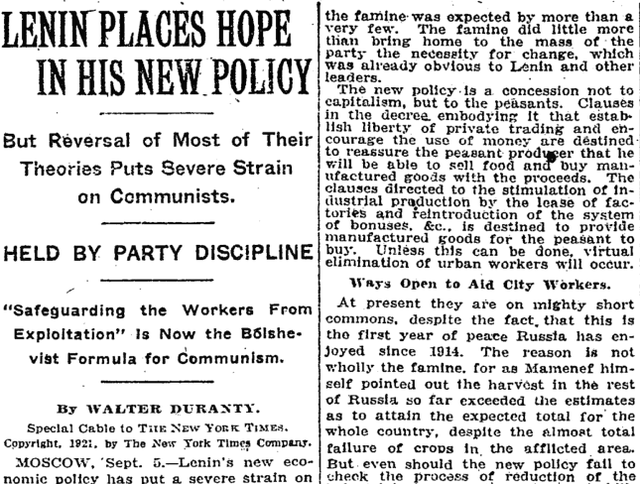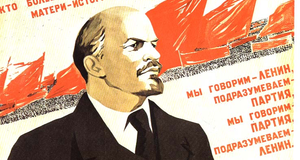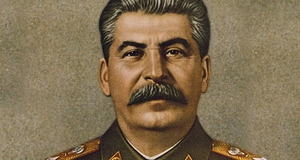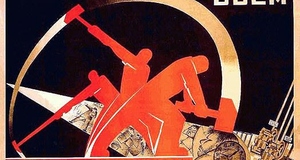Lenin's New Economic Policy: Coverage of the Policy by the New York Times
By
2010, Vol. 2 No. 06 | pg. 1/3 | »
IN THIS ARTICLE
KEYWORDS
When Lenin ushered in the New Economic Policy in August 1921, many Bolsheviks and their sympathizers lost faith in the Soviet government. Throughout August to September 1921, The New York Times’ Walter Duranty vacillated between recognizing the Soviet regime as a legitimate authority, and foreseeing its imminent collapse. While Russia was in the midst of a devastating famine, Duranty was at times critical of the Soviet leadership’s actions leading up to and after the New Economic Policy’s arrival. Although not a communist in 1921, Duranty’s reports on the New Economic Policy foreshadow his laudatory coverage of Stalin and “militant communism.” Setting is also an important factor when analyzing Duranty’s coverage. His reports in Riga display a different tone than when he arrived in Moscow. Duranty’s coverage of the New Economic Policy reflects his opposing views on the legitimacy of the Soviet government. On the eve of the New Economic Policy’s introduction in August 1921, Duranty was in Riga writing about the need for famine relief. In his article entitled “Senator France Sees Russia Going Back to ‘Capitalism,’” Duranty quotes Maryland’s Senator Joseph France for the majority of the article.1 France argues that the famine is naturally shifting Russia towards a capitalist economy, with the full support of the Soviet regime. Duranty, however, was skeptical of such a full change of heart on the part of the Bolsheviks, especially in light of the famine’s devastation. Duranty did not see the Soviet regime surviving such a disaster, writing: "Despite the famine in the Volga area, which is taxing to the uttermost, perhaps overtaxing all the energies and resources of the Soviet government, the Senator is optimistic about the future of Russia. And by that he means the future of Russia under Soviet rule, for he believes that the present government, though it may and probably will be greatly modified in policy or personnel by coming changes, is founded on a basis so broad and strong that it cannot be overthrown."2 Duranty questioned the legitimacy of France’s claims about Russia’s economic situation. France’s legitimacy as an eyewitness also comes into question. His statement, “one doesn’t need to know Russian or Russia to see whether farmers are working and gauge their general sentiment,” establishes him as an unreliable source.3 From this line one can conclude that France does not speak Russian, and used a translator, whose own biases may have colored his interpretation.Duranty, however, was also guilty of this. In her biography on Duranty, Taylor writes that when the New Economic Policy was first announced a Soviet press officer named Markov translated the Pravda article for Duranty, and explained its significance to him.4 Duranty nevertheless thought France’s claim was illegitimate, and scoffed at the Bolsheviks’ supposed change. He writes: "Senator France declares. . . (the Soviet leaders) have abandoned the Marxian utopia for the earth as it is. They are open minded-this epithet recurred constantly in the Senator’s conversation-they will not try to dam or even swim against the flood of natural forces."5 Duranty agreed with France on one point: that Russia should be given famine aid as quickly as possible. France’s final statement in the article mirrors that of Duranty’s coverage of the change in Riga only days later. Before giving Russia relief, France insists that the United States must acknowledge the legitimacy of the Soviet leadership. He claims, "The first step should be universal recognition of the Soviet Government, which is the Government de facto founded on the will of nearly the whole Russian nation. . .Then Russia should be lent money for her immediate needs. But, first and last, my message to the American people is this: Give these folks a chance, they haven’t had one yet."6 The next day, Duranty further drove his point about the imminent collapse of the Soviet regime home by announcing that “Famine is Driving Russia to Revolt.”7 He emphasizes that “Russia is a bleak picture of famine, pestilence, and despair” where “parents desert children from desperation.”8 In the article’s second column, Duranty concedes that “the Soviet Government appears to be doing its utmost to aid the sufferers,” but that it faces two great difficulties.9 These are that the peasants refuse to relinquish their supplies and that the distance the relief must travel is too great. Duranty then gives the point of view of the Lettish Mission in Moscow, the Soviet newspaper in Riga, and refugee statements, recognizing that: "All three concur in stating that there seems no likelihood of any concerted attempt to overthrow the Bolshevist Government from within. A ‘palace revolution’ in the heart of the party, similar to what occurred in Paris during the Reign of Terror, is deemed possible but not probable."10 This, however, is not Duranty’s opinion. He foresaw the fall of the Soviet government hastened by the famine. Duranty immediately concludes his article: "The most noticeable effect of the famine-or perhaps the effect of other causes thrown into relief by the famine- is the gradual but steady weakening of the Soviet authority in the outlying areas. The local governments are becoming more and more a law unto themselves, the process being hastened by the breakdown of transportation. It seems as though some seven-tenths of the Russian people were quietly relapsing into the primitive agriculture of their early ancestors."11 Duranty shows no hesitation in painting the Bolsheviks negatively. Duranty genuinely wanted to see the famine sufferers relieved, and saw the Bolsheviks as, if not the orchestrators of Russia’s suffering at least not the sufferer’s advocates. In his column entitled “Two Views of Soviet Policy,” under the heading “Russian Relief Body May Upset Soviet,” Duranty puts forth his claim that the Soviet leaders are untruthful.12 His use of passive voice with the line “it appears to be the intention of the Soviet Government to set aside politics as far as possible in its handling of the famine situation,” reveals that he does not think the Soviet regime’s vow to place people before politics is sincere.13 Duranty announces that the Russian government will hold discussions on the cholera epidemic and the economy. He writes, "The first (interpretation) is that the Bolshevist leaders have seen the error of their ways-economic ways, anyhow-and are determined to use the famine as the occasion for a kind of truce, not only with their opponents in Russia, but with the outer world. The second possibility is that the non-political protestations are mere camouflage to enable the Bolsheviks to use outside help to extricate themselves from a hole."14 In Duranty’s opinion, the truth falls in the middle of both interpretations. He opines that a radical observer “might truthfully say it had the second possibility in mind,” while a more moderate observer, “probably does realize the failure of the Bolshevist experiment.”15 Duranty thusly sees that admitting the imminent collapse of the Soviet authority is the most reasonable assumption one can make. In light if the famine, Duranty mistrusted the Soviet regime’s proposed changes. On August 13, 1921, Duranty announced Lenin’s New Economic Policy, which marked the beginning of changes both in Russia and Duranty himself.16 His first line, “Lenin has thrown communism overboard,” suggests relief and celebration.17 Duranty admits that he may have judged the Bolsheviks too harshly, and realizes that now Lenin is moving closer to capitalism than he imagined: “Lenin’s new policy. . .is moving still further in the industrial and capitalistic systems of the rest of the world than was at first believed.”18 The use of passive voice, however, suggests that Duranty was not too willing to admit that he was mistaken.Continued on Next Page » Suggested Reading from Inquiries Journal
Inquiries Journal provides undergraduate and graduate students around the world a platform for the wide dissemination of academic work over a range of core disciplines. Representing the work of students from hundreds of institutions around the globe, Inquiries Journal's large database of academic articles is completely free. Learn more | Blog | Submit Latest in Business & Communications |



















